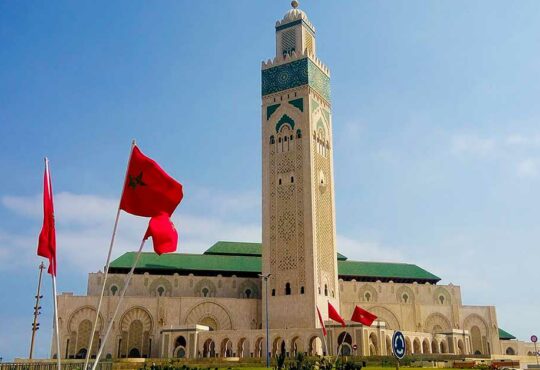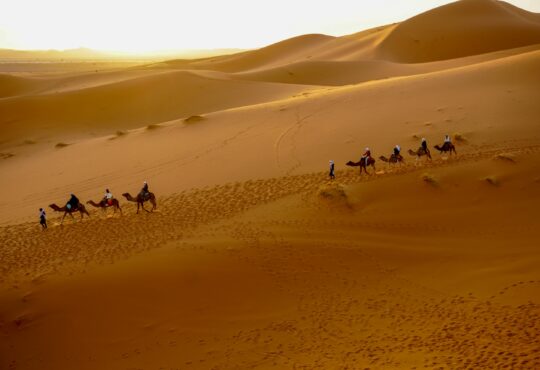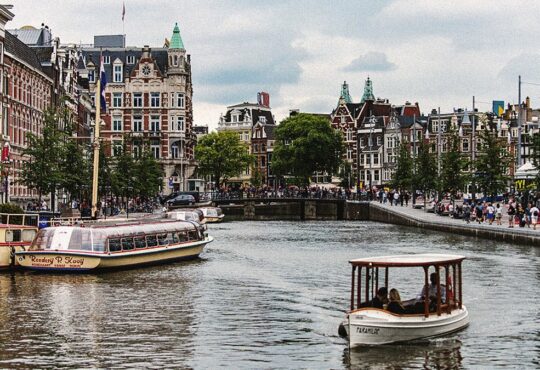2.1K
If you are considering living in Saudi Arabia then look no further than this comprehensive guide. Saudi Arabia is undoubtedly one of the most, if not the most, famous and significant Arab countries in the world. Some think that Saudi Arabia is important only because of its large oil deposits. This is partly true.
Saudi Arabia is considered the largest oil-producing country in the world. However, Saudi Arabia is also significant for many other religious, cultural, geographical, and political reasons. Furthermore, Saudi Arabia is currently a nation in flux. There are several economic and social changes taking place. These changes have opened up several lucrative opportunities for businesses and skilled workers from all over the world.
Saudi Arabia is one of the most influential nations in the region, religiously, economically and strategically. As the birthplace of the religion of Islam, millions of people have been visiting the holy cities of Makkah and Madinah for centuries.
More recently, Saudi Arabia’s high oil production has helped it rapidly develop and modernise which has opened up lucrative job opportunities in several sectors for skilled foreign workers. However, like with all places there are advantages and disadvantages of living and working in Saudi Arabia.
Some of its advantages include high salaries, loads of vacation, and impressive employee benefits. Some disadvantages might be the challenges associated with adapting to the work culture, the language barrier, and the lack of entertainment options, not to mention the weather.
Foreign residents can benefit from several options when it comes to international schools, private healthcare, accomodation and fine-dining. In addition, the Saudi government as introduced several initiatives to boost tourism and entertainment in the kingdom.
Saudi Arabia is an interesting experience that can be good or bad. The only way to know if you would like it or not is to go there and see it for what it is!
Have no time to read this guide about living in Saudi Arabia? Click the red Pinterest button to save it!
Disclosure: Some links in this article may be affiliate links, which means that if you purchase through them, we receive a small commission. This will never cost you extra and in some cases, you receive a special discount. We appreciate your support!
The term Middle-east is often misunderstood and there are no clear boundaries regarding where the Middle-east begins and where it ends. It is more loosely used to stereotype Arab or Muslim nations. That being said, Saudi Arabia can be considered as the center of the Middle-east, by any definition.
So the question we then have is: Is Saudi Arabia representative in any way of any or all of the other Middle-eastern countries? The short answer is no. While there may be some overlap between countries in the Arabian Gulf or Middle-east, there are some clear differences that set them apart.
Al Tayibat Museum in Jeddah | Source: Unsplash
Saudi Arabia is a safe country. Murder, theft, and robberies do happen but are not common in Saudi Arabia. Due to the strict punishments enforced by the government, many avoid any form of conflict with the law or police. There is also a strong police presence, especially in cities and on busy national roads.
Although Saudi Arabia is one of the richest countries in the world, it has a relatively low cost of living. Services like water and electricity are cheap. Fuel and transportation costs are extremely cheap. Other expenses like food, accommodation are reasonably priced.
There are high salaries available for skilled professionals that are in demand, like teachers, doctors, engineers, artisans, etc. All foreign workers need to receive housing or housing allowances. According to the law, your housing allowance should be equal to at least 20% of your basic salary. Your company should provide you with flights to visit your home country at least once every two years.
Some companies provide flights annually. Medical insurance is provided by your employer, by law. All residence and work permit fees need to be covered by your employer. Workers are entitled to 1 month of paid vacation, excluding national holidays. There are several national and religious holidays that can add up to a few weeks of additional paid vacation.
Saudi Arabia is centrally located which makes traveling to other countries in the region easy. Saudi Arabia is home to several holy sites, including the Holy Mosques. These sites are visited by Muslims from all over the world.
The government has made access to government services much easier by launching the Absher online system. This system contains information about your visas, permits, licenses, etc. and many services can be applied for or extended on this system, without going to a government office. This is way better than previous tedious procedures.
There are millions of ex-pats from just about everywhere living in Saudi Arabia right now.
Saudi Arabia has a wide variety of international companies and consumer goods. From food to designer clothing, there is very little that you won’t find there.
The Saudi government has recently introduced a VAT of 15%. However, Saudi Arabia does not tax the earnings of individuals and there are no restrictions on foreign remittance. You can send all your money home without any obstacles.
Hail, Saudi Arabia | Source: Unsplash
Saudi Arabia is one of the hottest countries in the world. Summer temperatures can peak in excess of 50 degrees celsius. There is little chance of enjoying the outdoors during these months. Also, you will find yourself constantly dependent on air conditioning, which is not healthy.
The Saudi government has imposed taxes aimed at foreign residents. These include exit/re-entry visas (a tax that foreigners pay when they leave and re-enter the country) and dependent fees (fees that foreign workers need to pay for their spouse and children who reside in the kingdom).
Businesses have differing work hours. All businesses need to close 5 times a day for the obligatory congregational prayers. This includes shops, restaurants, gas stations, pharmacies, etc. If you require something you will have to wait outside until the prayer is over, 30-minutes to 45 minutes.
Also, many businesses just don’t open in the morning. They open their doors from late afternoon and remain open well into the night. If you are a morning person, you will need to get used to this.
The sponsorship law means that your work and resident permit is tied to your employer or ‘sponsor’. This can cause several problems. One problem is changing your job in Saudi Arabia. You will need to get the permission of your current employer to change jobs. This process can be difficult and tedious. Once you get permission, you need to transfer your sponsorship to your new employer. This can also be difficult at times.
The law in Saudi Arabia still doesn’t allow non-citizens to own land or property. Also, entrepreneurs need to have Saudi partners in order to do business in Saudi Arabia. There are rumors that it will change but this remains to be seen.
There is still no procedure for a resident to become a citizen of Saudi Arabia. This limits opportunities for foreigners living in Saudi Arabia.
Saudi Arabia now offers work visas (IQAMA), family visas, tourist visas, pilgrim visas, and business visas. The work permit or Iqama is a term you will hear being thrown around all the time in Saudi Arabia. Once you get there it kind of becomes second nature to you, as unusual as the term sounds now.
This is basically your Resident I.D card, which also serves as a work permit. There are two types of Iqama: one for workers and one for non-working residents like a spouse or children. Everything you do in Saudi Arabia is linked to your Iqama number. You can’t leave the house without it.
The application procedure for living and working in Saudi Arabia is done by your sponsor. Your sponsor first gives you a 90-day work visa, facilitated through your local Saudi Arabian embassy or consulate, that you need to enter the country. Once you enter the country your employer will get you your Iqama.
Saudi Arabia’s culture is a mixture of Arab culture and Islamic traditions. Saudis are generally, simple, generous, and welcoming to guests. They feel that it is their duty to treat guests well, especially in villages and rural areas. On the other hand, they expect guests and foreigners to respect their religion and culture.
Hajj (Pilgrams) in Mecca | Source: Unsplash
Saudi Arabia is not a secular country. It is an Islamic monarchy. Therefore, people are bound by an Islamic legal system. Islam is the only recognized religion by the government and Arabic is the official language. Saudi Arabia is home to the holiest sites for Muslims. So, the whole country is considered to be sacred land by Muslims. As such certain things are forbidden, including drugs and alcohol, places of worship for non-Muslims like churches and temples, free-mixing of men and women in public. Several places are segregated for men and women.
Families are accommodated in-between. By law, a man is not allowed to be with a woman that he is not related to. It also goes without saying that religion and politics are not matters that people are comfortable discussing. Also, taking pictures of random people is not generally acceptable, especially if there are any women nearby.
The dress code differs for men and women. There is no specific dress code for men. However, it is advised that men avoid wearing shorts when visiting mosques, shopping malls, banks, or government buildings. Also, wearing a vest may draw unwanted attention from the public and the police, which may be inconvenient but not illegal. I have also heard of men with very long hair being given ‘a hard time’ by police.
Things are a bit stricter with regard to women. In the past, women were obligated to cover their hair with a scarf and wear an abaya. However, in recent years, things have become more ‘relaxed’. More and more women are now visible in public without head-coverings.
Saudi Arabia is and has been a monolingual country for centuries. Arabic has always been their only language until now that is. Since the 90s, the Saudi government has invested greatly in education. Thus, thousands of English teachers have been recruited to teach Saudis English. This strategy has had varying levels of success.
However, English can now be considered Saudi Arabia’s second language. Street signs are written in Arabic and English. Other services are also available in English. Nevertheless, the majority of people in Saudi Arabia speak little to no English. Some basic knowledge of Arabic will go a long way if you go to Saudi Arabia.
There is no organized public transportation in Saudi Arabia. Most people rely on private transportation. There are taxis and taxi apps available, like Uber and Careem. Some companies and schools provide transportation for their employees and students respectively. There are intercity buses, mostly run by the government company SAPTCO.
There are also train projects underway that are supposed to connect the major cities. Riyadh has been working on a subway system for years. The construction has torn the city apart. The bottom line is that if you live in Saudi Arabia you need to own a car and be able to drive. That is the only reliable form of transportation.
Ushaiqer Herritage village in Saudi Arabia | Source: Unsplash
Saudi Arabia is a country that is undergoing many economic and structural changes. These changes will surely provide several good opportunities for a great deal of foreign skilled labor. The following are growing sectors in Saudi Arabia that require a large supply of foreign workers.
Saudi Arabia lies above the largest oil fields in the world. SAUDI ARAMCO, the countries national oil company is one of the biggest companies in the world. They are also known to pay ridiculously high salaries.
The second most important industry in Saudi Arabia is the Petrochemicals industry. This field is also dominated by local and international companies that offer great opportunities.
The first university established in Saudi Arabia was King Saud University in 1957. Back then higher education was not very popular. The Saudi government used large subsidies and allowances to attract Saudis from all over the country to pursue higher education. Since then, universities and schools have sprung up all over the country to provide education to the country’s 30 million people.
READ MORE | HOW TO FIND ENGLISH TEACHING JOBS IN SAUDI ARABIA
There is a serious shortage of Saudi healthcare workers. Therefore, anyone looking for work as a health professional will find several good opportunities in the public and private sectors.
If you get a job in Saudi Arabia then you will have to choose one of 2 options: you can live in the housing provided by your company; you will receive a housing allowance, equal to 20% of your basic salary to find your own housing.
This may be a good option if you work for a good company. Some companies house their employees in secure expat compounds that have tight security and have great facilities like swimming pools, gardens and sports centers Also, your company will cover all the expenses including water, electricity, etc.
This is great for saving. Not to mention that the apartments are fully furnished. On the downside, living in company-provided accommodation can have its disadvantages. You might have to agree to certain rules. You may not be allowed to live there with your family or have overnight visitors. You will have to put up with the tight security, which means showing your access card and waiting for them to open the huge gates every time you enter. Another thing, that I don’t quite like, is that will might be living in close proximity to your work colleagues and bosses. This is not always ideal.
If you choose to get your own housing, you could blast around 20000 USD a year on a compound, which is a lot in Saudi Arabia, or you could rent a normal apartment for much cheaper.
Unfurnished apartments can cost from 15000– 30000 Saudi Riyals (4-8K USD) per year, this includes water and electricity. This option is cheaper and offers you more flexibility and independence. You could also save extra money on housing, depending on your housing allowance. The most important thing is stability. You won’t have to worry about being kicked out onto the street if you lost your job. The apartment will be in your name so you can live there as long as you like, even if you decide to change jobs.
Saudi Arabia has a public schooling system and also offers a huge variety of private schools. In public schools the medium of instruction is Arabic and the English language is not given much importance. Therefore, private schools are very popular, especially for foreign residents.
There are several private schools, often called international schools, in Saudi Arabia that offer programs in Arabic, English, and even mixed curriculums. School fees range from 5000 to 20000 USD annually. Most of them use an international curriculum that is British or American. This is their major selling point. The quality of education at these schools varies. There seems to be no limit to the number of schools, which is increasing all the time.
According to Saudi law, your sponsor or employer must provide you with private medical insurance. How good your insurance package is, depends on the discretion of your company. With a basic package, you could get free treatment at government hospitals but you would not be fully covered at private clinics and hospitals. You may have to pay 50%, for example.
You can shop around to find the healthcare provider that gives you the best rate. Some companies allow for the option of increasing your insurance package at your personal cost. You can request this from your HR department.
Saudi Arabia’s major cities have a huge variety of healthcare options available at different costs. It’s not the best healthcare system in the world but you will be taken care of. Services in Saudi Arabia are getting better all the time. I have been to some good and bad hospitals in Saudi Arabia, like in other countries, so it’s important to do your homework and make use of your local network of friends and colleagues to get the right information.
A mosque in Dammam, Saudi Arabia | Source: Unsplash
To be most comfortable, you would want to be living in one of the three major cities in Saudi Arabia which are Riyadh, Jeddah, and Dammam. These cities offer what you would expect of an international city.
They have an abundance of accommodation, great places to eat, and good services like international schools, gyms, sports clubs, and shopping malls. These cities are also where you will find most of the jobs in Saudi Arabia. Also, these cities have large groups of people from all over the world.
However, Saudi Arabia is a lot more than 3 cities only, It has some of the most beautiful and historic cities that are worth checking out.
Saudi Arabia is not known for its entertainment. Most things to do are centered around eating, shopping, and spending time with people. However, this is supposed to be changing.
The government has mandated a new body, called the General Entertainment Authority, to promote and facilitate new things for people to do, specifically the youth. This has led to the introduction of cinemas, festivals, an emerging food truck scene in major cities, and so on.
The main local dish in Saudi Arabia is Kabsah, which is meat or chicken served with rice. If rice is not your thing, you will be pleased to know that there is a wide variety of food available in Saudi Arabia.
To be honest, it’s rather overwhelming. All major American food franchises are spread across the country and there are even some new exclusive restaurants popping up in the major cities. You will never go hungry if you’re living in Saudi Arabia. Check our guide about food in Saudi Arabia.
Saudi Arabia is a country that had remained unchanged for centuries. That’s over now. Under new management, the country is quickly modernizing its economy, legal system, and society in general. The outcomes and success of this ambitious project still remain to be seen. What we do know is that there are opportunities like no other in Saudi Arabia.
Saudi Arabia is determined to be the best, and they are in a hurry. Towards this goal, they are prepared to devote a large chunk of their wealth so that they can recover lost ground and transform their country into something amazing. Saudi Arabia may not be the land where all your dreams come true but it certainly offers great opportunities to work, save and explore.
LIKE IT? PIN IT!





